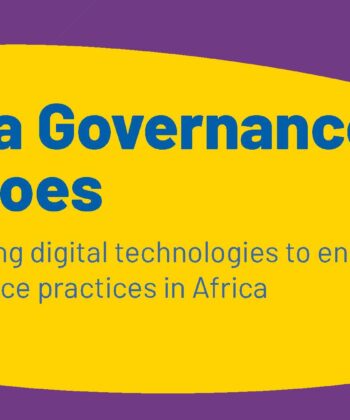
In a world where data drives innovation, the ethical use of data has become a crucial consideration for African nations and organizations. As the continent rapidly advances in technology and data analytics, it is essential to address the ethical implications of data use to ensure that innovation benefits all and does not come at the cost of individual rights or societal well-being.
Data ethics involves principles and practices that govern the responsible use of data, focusing on fairness, transparency, and respect for privacy. As Africa emerges as a key player in the global digital economy, integrating strong ethical standards into data practices is not only a moral imperative but also a strategic advantage.
The Importance of Data Ethics
- Protecting Individual Privacy: Ethical data practices ensure that personal information is handled with care and respect, protecting individuals from misuse or unauthorized access.
- Promoting Fairness: By adhering to ethical standards, organizations can prevent biases and discrimination in data-driven decisions, ensuring that outcomes are fair and equitable.
- Building Public Trust: Transparent and ethical data practices foster trust among citizens and stakeholders, enhancing the credibility and reputation of organizations and governments.
Principles of Data Ethics
- Transparency: Organizations should be open about how data is collected, used, and shared. Providing clear information about data practices helps build trust and accountability.
- Consent: Obtaining informed consent from individuals before collecting or using their data is a fundamental ethical practice. It ensures that people are aware of and agree to how their data will be used.
- Data Minimization: Collecting only the data that is necessary for a specific purpose helps reduce the risk of misuse and protects individuals’ privacy.
- Accountability: Organizations must take responsibility for their data practices, including addressing any issues or breaches that may arise and taking steps to rectify them.
Challenges and Opportunities
- Balancing Innovation and Ethics: While data can drive significant innovation, organizations must carefully navigate the balance between leveraging data for growth and maintaining ethical standards. Striking this balance is key to sustainable and responsible innovation.
- Developing Ethical Frameworks: Creating and implementing ethical guidelines and frameworks tailored to the African context can help guide organizations in making responsible data decisions.
- Promoting Ethical Education: Educating stakeholders, including businesses, policymakers, and the public, about data ethics can drive better practices and awareness across the continent.
As Africa continues to embrace the digital age, prioritizing data ethics is essential for ensuring that innovation benefits everyone and upholds the highest standards of fairness and respect. By integrating ethical practices into data governance, African nations and organizations can lead by example, driving progress while protecting individual rights and fostering public trust.



